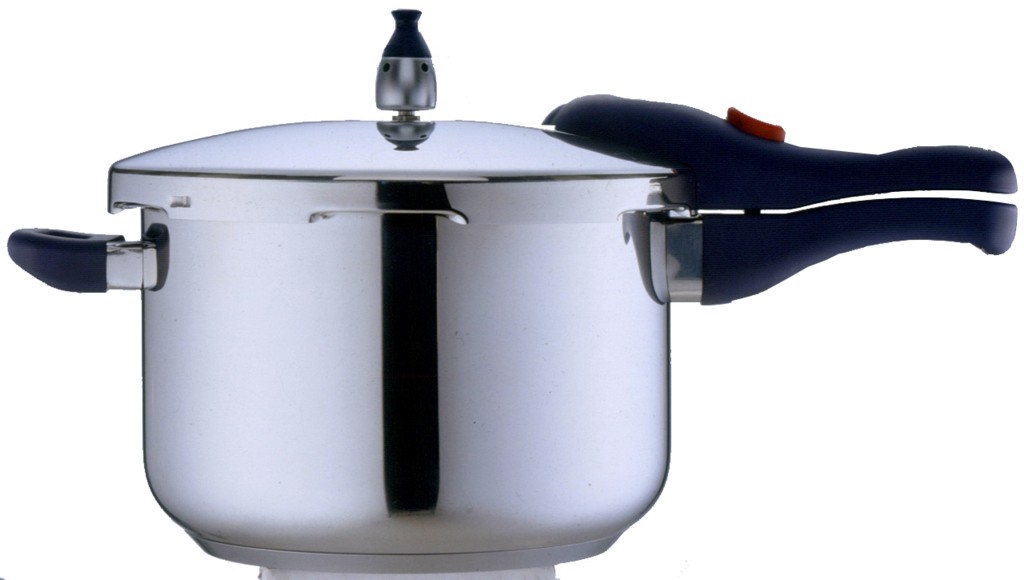Cooking Under Pressure
Written by Zach Erick
After recently moving to a house without an oven, I’ve had to put my thinking cap on in regards to how I am going to cook for myself. Let me make this clear – I suck at cooking. I’m sure I’d be okay at it if I put in the effort, but I really don’t care to. Food is a source of energy and recovery for me, not a gastronomic adventure waiting to be devoured. For breakfast I have bacon, eggs, sautéed greens, and if I’m feeling a little crazy, I’ll add an avocado. Lunch is typically a protein shake along with a leafy salad with some sort of protein, and when I say leafy I mean my salad is literally leaves plus meat. Dinner is the saddest affair of all: one pound of cooked ground beef, plus greens, then either some white rice or sweet potato. This diet can get pretty monotonous.
When I get to the point where I cannot stomach eating another pound of ground beef, I’ll bust out the crockpot and make a roast, which normally comes out pretty good. However, I’m not a fan of the 12-18 hour cook time. So when I moved and had to leave my old roommates crockpot and oven behind I thought I was S.O.L. for my future culinary endeavors. Just in the nick of time I saw the light, or should I say the steam?
The pressure cooker is an extremely efficient, superior method of cooking to the conventional oven, crock pot, dutch oven, rice cooker, steamer, etc. Almost all food contains water inside of it. The pressure cooker increases the pressure inside the pot which in turn increases the boiling point of water, which means you can cook food at a higher temperature than other methods AND avoid water loss – no more chalky chicken! The increased cooking temperature is also the reason why you can have a roast ready in 15-30 minutes rather than 12-18 hours with the crockpot.
The decreased cooking time has a HUGE benefit to the nutrient density to your food as well. There are two main reasons we lose nutrients in the food we cook:
-
Cook time – the longer you cook, steam, boil, grill, sear, or fry a food, the more nutrients are lost.
-
Water – have you ever boiled broccoli to find that beautiful green hue has left your broccoli and found its way into the water? A significant amount of the broccoli’s nutrients have leached its way into the water that you’re now going to pour down the drain.
Pressure cooking uses very little water compared to other methods, so less water comes in contact with your food.
For me, the purchase of a pressure cooker was a no brainer. You can cook anything you want in it: meat, rice, veggies (be very attentive with veggies, they can turn into mush quickly.) The decreased cook time is also very nice when I get home at 9:00 p.m. and have to scarf down food before bed. Who knows, maybe I’ll become one of those food bloggers constantly annoying you with the latest bone broth recipe. “Cooking Under Pressure with Coach Zach” I like the sounds of that. Coming soon!

The best nonstick cookware is safe and will keep your garlic chicken from sticking to the bottom of the pot or pan. Here at https://cookware-reviews.com/ you can find a lot of cookware reviews.